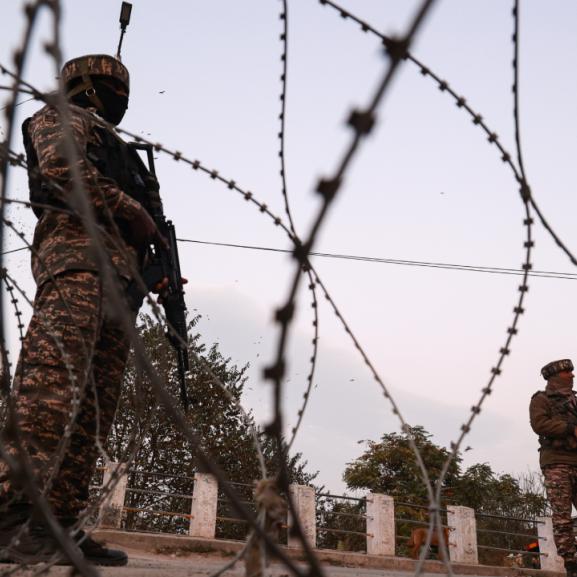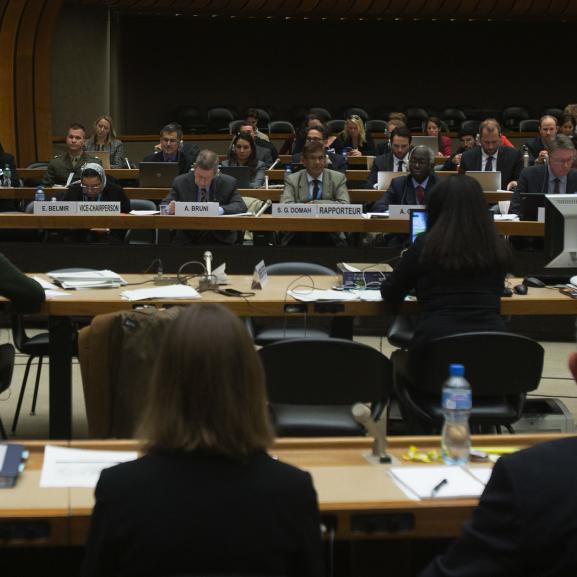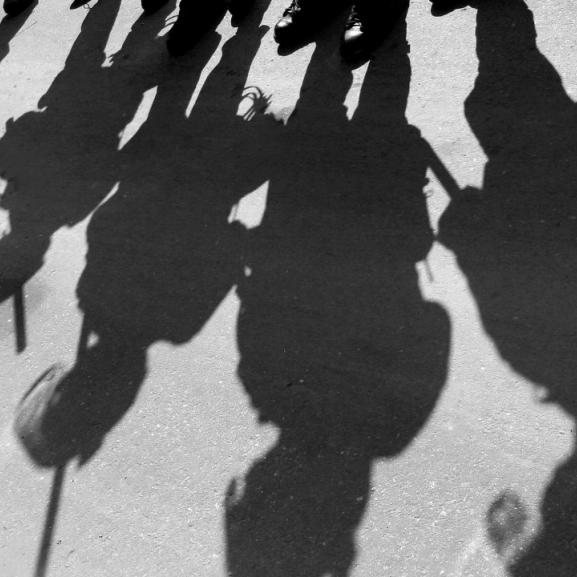Open letter concerning reports that information which informed the UK’s decision to suspend funding to UNRWA was obtained by torture
Freedom from Torture and REDRESS wrote to PM Rishi Sunak requesting urgent action to ensure that any information used by the UK to inform its response to the crisis in Israel and the Occupied Palestinian Territories has not been obtained by torture.
Dear Prime Minister
We are writing regarding reports that information provided by the Israeli authorities on the involvement of staff members of The United Nations Relief and Works Agency for Palestine Refugees in the Near East (UNRWA) in the attack on Israel on 7 October, upon which the UK government acted, was obtained through torture.
Reliance on information obtained by torture or other ill-treatment is a betrayal of the UK’s obligations to prevent torture, whether committed under the UK’s own authority or by others. We call on you to urgently ensure that any intelligence provided by the Israeli authorities used by the UK to inform its response to this crisis has not been obtained by torture or other ill-treatment.
We are UK based anti-torture organisations. Freedom from Torture provides therapies, forensic documentation and legal and welfare support to survivors of torture seeking protection in the UK. REDRESS is a UK charity that brings legal claims for justice and reparation on behalf of torture survivors around the world. We are highly concerned by soaring reports of torture in Gaza, Israel and the West Bank since 7 October 2023.
On 26 January, UNRWA announced an investigation into information provided by the Israeli authorities about the alleged involvement of UNRWA employees in the 7 October attack on Israel. The UK, amongst others, responded within a day by announcing a suspension of future UNRWA funding. On 5 March, the UK requested a plan of action from UNRWA and “commitments that address findings to ensure real change”.
In March, the Reuters news agency, amongst others, reported on the circulation of an unpublished UNRWA report containing claims that the Israeli intelligence was based on information obtained through abuses, including torture of UNRWA staff.[1] According to Reuters, the UNRWA report alleges staff members were subject to “severe physical beatings, waterboarding, and threats of harm to family members” while in Israeli military detention.
These allegations have received extensive press coverage and require a response by the UK government. Furthermore, they are emerging in a context of long-standing use of torture by both Israeli and Palestinian authorities,[2] as well as a serious escalation of abuse since 7 October that has been described by global anti-torture organisations as a “torture crisis”.[3] Since the 7 October attack there has been an upsurge in the numbers of Palestinians held in Israeli detention facilities alongside reports of widespread torture at the hands of Israeli military, security and police personnel.
In February, an urgent appeal for intervention was made to the United Nations Special Rapporteur on Torture by a group of regional human rights organisations with extensive experience in documenting torture. The submission describes severe beatings, sexual assault, humiliation, and denial of medical care. Grave concerns have also been raised about the risks to Palestinians arrested in Gaza and transferred to Israeli military camps where they are held incommunicado, especially given alarming reports of multiple deaths of detainees since the escalation in hostilities.
Also in February, a group of UN Special Procedures called for investigations into “credible allegations of egregious human rights violations”, including actual and threatened sexual violence, against Palestinian women and girls held in Israeli custody in Gaza and the West Bank since 7 October.[4]
Additionally, Israel has severely restricted access by the International Committee of the Red Cross to Palestinians in Israeli detention facilities. Such visits can constitute a crucial means of preventing torture. Many of those detained in connection with the attack on 7 October have been held incommunicado, placing them at heightened risk of torture.
Accounts and testimonies of torture, including sexual violence, perpetrated during the attack on Israel by Hamas and other armed groups on 7 October have also been placed in the public domain in recent months. The UK has rightly condemned these heinous acts and has repeatedly called for the release of hostages in Gaza, who remain at risk of further abuses. However, the UK has been far more reticent in its response to reports of widespread use of torture by Israel.
Between us, we know from our varied forms of work with survivors of torture from around the world, including in some cases the Occupied Palestinian Territories, that torture causes severe and enduring trauma, with the impacts felt not only by survivors themselves, but also their families and societies.
The inadmissibility of evidence obtained through torture in any proceedings is set out in Article 15 of the UN Convention Against Torture, to which the UK is a State Party, and it is also a rule of customary international law. In a 2005 landmark ruling, the UK House of Lords (judicial branch) confirmed the long history of the exclusionary rule under domestic law. In his lead judgment, Lord Bingham of Cornhill described torture evidence as “unreliable, unfair [and] offensive to ordinary standards of humanity and decency” and confirmed that the English common law had viewed "torture and its fruits" with abhorrence for more than 500 years.[5]
This bedrock principle should guide the UK’s response to any information that may have been obtained by torture or other ill-treatment, not just in formal proceedings but in “any formal decision-making by State officials”.[6] In line with this, the UK has rightly taken the position that “...receipt of intelligence should not occur where it is known or believed that receipt would amount to encouragement to the intelligence services of other States to commit torture” and sets out guidance on this in “The Principles relating to the detention and interviewing of detainees overseas and the passing and receipt of intelligence relating to detainees”.[7]
The absolute prohibition on torture is a foundational norm of the rules-based international system, and the rule against use of torture evidence is both an essential component of the absolute ban and an important means of ensuring it is not violated.[8] At this critical moment, the UK must demonstrate principled global leadership and safeguard the credibility of its torture prevention efforts by ensuring that the prohibition is consistently upheld.
This should include positive steps to prevent and punish torture, whether involving UK personnel or not, due diligence to ensure that the UK does not make use of any evidence where there is a real risk that it has been obtained through torture or other ill-treatment, and corrective action when it subsequently emerges that reliance on such evidence has occurred. Any indication of a selective approach risks an erosion of the global torture ban that will have ramifications well beyond the crisis in Israel and the Occupied Palestinian Territories.
In this regard, we urge you to:
- Immediately and publicly condemn torture on all sides of the conflict in Israel and the Occupied Palestinian Territories;
- Ensure that the UK takes no receipt of, and makes no use of intelligence provided by Israel or other authorities where there is a real risk that it has been obtained by torture or other ill-treatment;
- Urgently review the decision to suspend UK funding for UNRWA to ensure compliance with the UK’s obligation not to use evidence obtained via torture or other ill-treatment as a basis for formal decision-making and not to acquiesce in torture by other states;
- Immediately raise concerns with the relevant Israeli authorities about reports of torture and other ill-treatment being used to obtain intelligence and call on the said authorities to investigate such allegations, ensure perpetrators are held to account and provide redress for survivors and victims;
- Publicly repudiate reliance on intelligence material and/or “confessions” obtained using torture;
- Refrain from any actions or statements which risk being seen as encouraging or condoning torture, including by allies of the UK;
- Urgently call for independent monitors and lawyers to have access to Palestinians in Israeli detention facilities;
- Work with the international community to ensure that perpetrators of torture are brought to justice in line with international standards and that survivors and victims of torture receive reparations including realisation of their right to rehabilitation;
- Reaffirm the eradication of torture as a vital goal of UK foreign policy.
Thank you in advance for your consideration of these matters. We look forward to receiving your response.
Yours faithfully
Sonya Sceats, CEO, Freedom from Torture
Rupert Skilbeck, Director, REDRESS
[1] Reuters, UNRWA report says Israel coerced some agency employees to falsely admit Hamas links. [online]. 8 March 2024. Available at: UNRWA report says Israel coerced some agency employees to falsely admit Hamas links | Reuters
[2] See for example: UN Committee Against Torture, Concluding Observations on the fifth periodic report of Israel, 3 June 2016, UN Doc. CAT/C/ISR/CO/5, available at: https://rb.gy/ckh92j; UN Committee Against Torture, Concluding Observations on the initial report of the State of Palestine, 23 August 2022, UN Doc. CAT/C/PSE/CO/1, available at: https://shorturl.at/kvEMW
[3] The United Against Torture Consortium, Israel-OPT/Gaza: International community must act on torture crisis. [online]. 23 February 2024. Available at: Israel-OPT/Gaza: International community must act on torture… | OMCT
[4] United Nations Office of the High Commissioner on Human Rights, Israel/oPt: UN experts appalled by reported human rights violations against Palestinian women and girls. [online]. Available at Israel/oPt: UN experts appalled by reported human rights violations against Palestinian women and girls | OHCHR
[5] A v Secretary of State for the Home Department (No 2) [2005] UKHL 71. Freedom from Torture and REDRESS were amongst 17 organisations which intervened in the case.
[6] Report of the Special Rapporteur on torture and other cruel, inhuman or degrading treatment or punishment, Juan E. Méndez, 10 April 2014, A/HRC/25/60, at para 30 (see also para 47). [online]. Available at A/HRC/25/60 (undocs.org)
[7] HM Government, The Principles relating to the detention and interviewing of detainees overseas and the passing and receipt of intelligence relating to detainees. [online]. July 2019. Available at: 20190718_The_Principles_relating_to_the_detention_and_interviewing_of_detainees_overseas.pdf (publishing.service.gov.uk)
[8] See Human Rights Committee, general comment No. 20 (1992) on the prohibition of torture or other cruel, inhuman or degrading treatment or punishment, para. 12.





